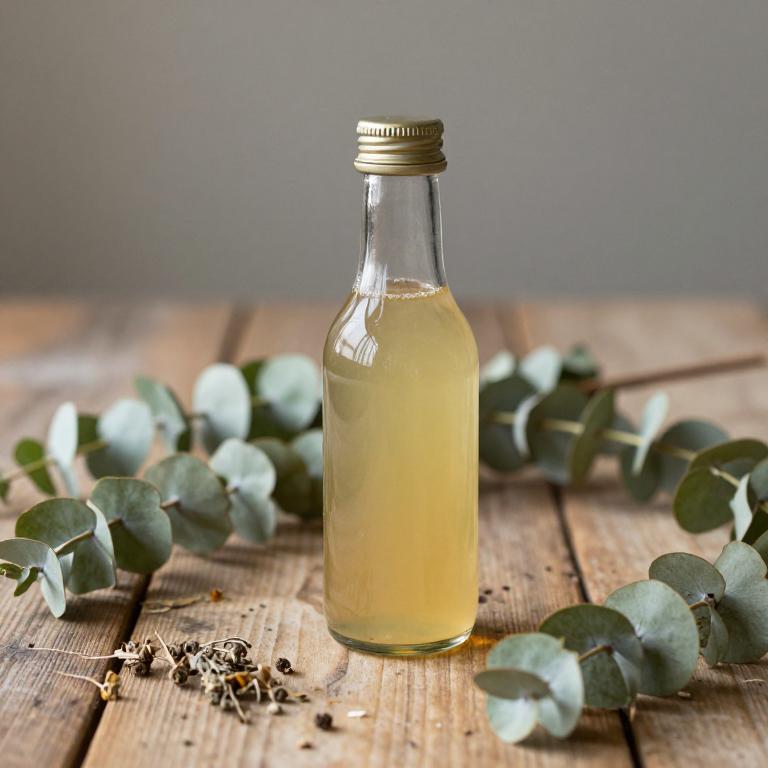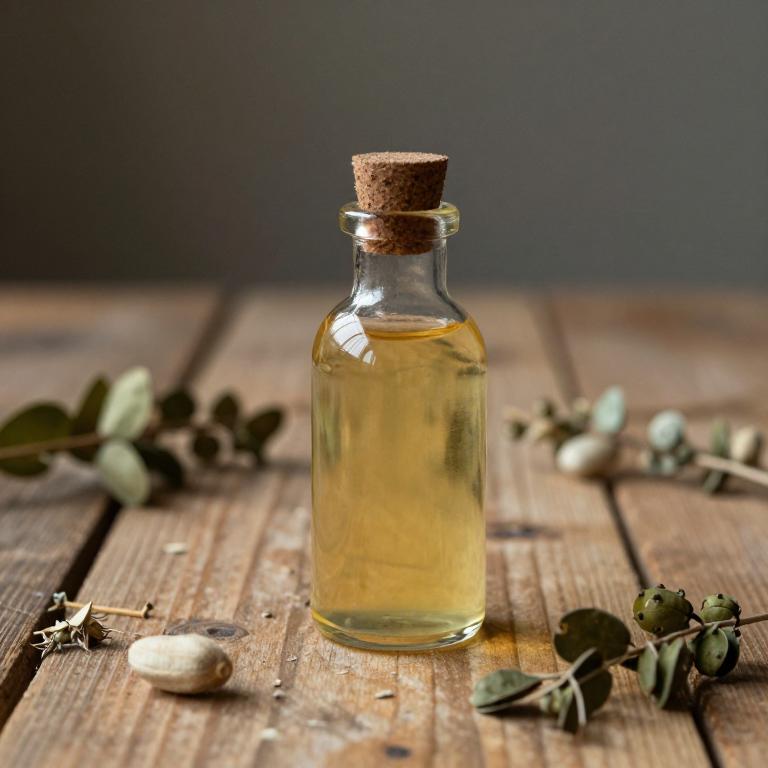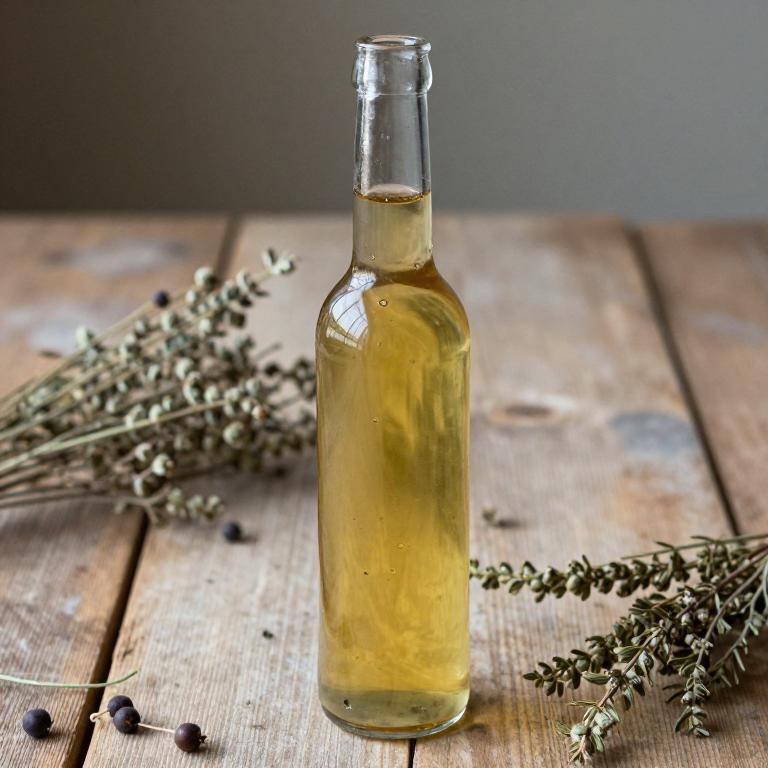10 Best Herbal Juices For Cavities

Herbal juices have gained popularity as natural remedies for maintaining oral health and preventing cavities.
Certain herbs like neem, clove, and fennel are known for their antimicrobial and anti-inflammatory properties, which can help reduce plaque and bacteria buildup in the mouth. These juices can be used as a complement to regular dental hygiene routines, offering a soothing and refreshing alternative to commercial mouthwashes. However, while they may support oral health, they should not replace professional dental care or fluoride treatments.
It is important to consult with a dentist before incorporating herbal juices into a daily oral care regimen to ensure safety and effectiveness.
Table of Contents
- 1. Salvia (Salvia officinalis)
- 2. Aloe vera (Aloe barbadensis)
- 3. Eucalyptus (Eucalyptus globulus)
- 4. Ginger (Zingiber officinale)
- 5. Black pepper (Piper nigrum)
- 6. Ceylon cinnamon (Cinnamomum verum)
- 7. Rosemary (Rosmarinus officinalis)
- 8. Fennel (Foeniculum vulgare)
- 9. Oregano (Origanum vulgare)
- 10. Peppermint (Mentha piperita)
1. Salvia (Salvia officinalis)

Salvia officinalis, commonly known as sage, has been traditionally used for its medicinal properties, including its potential benefits for oral health.
Herbal juices made from sage leaves may help reduce bacterial growth in the mouth, which is a key factor in the development of cavities. The plant contains compounds like thujone and rosmarinic acid, which have antimicrobial and anti-inflammatory effects that can support dental hygiene. Some studies suggest that sage extracts may inhibit the growth of Streptococcus mutans, a primary contributor to tooth decay.
While more research is needed, incorporating sage-based herbal juices into a daily routine might offer a natural complement to conventional oral care practices.
2. Aloe vera (Aloe barbadensis)

Aloe barbadensis, commonly known as aloe vera, has been traditionally used for its healing properties, including its potential benefits for oral health.
Some herbal juices made from aloe vera are believed to possess antimicrobial and anti-inflammatory properties that may help in reducing the risk of cavities by inhibiting the growth of harmful bacteria in the mouth. These juices can be used as a natural alternative or complement to conventional dental care routines, offering a soothing effect on irritated gums and promoting overall oral hygiene. However, while some studies suggest aloe vera may support dental health, more scientific research is needed to confirm its effectiveness in preventing cavities.
It is important to consult with a dentist before relying solely on herbal juices for cavity prevention, as they should not replace professional dental care.
3. Eucalyptus (Eucalyptus globulus)

Eucalyptus globulus, commonly known as the Australian eucalyptus, has been traditionally used for its antimicrobial and anti-inflammatory properties, making it a potential natural remedy for oral health issues like cavities.
The essential oils derived from this plant contain compounds such as eucalyptol and cineole, which have shown effectiveness in inhibiting the growth of bacteria that cause tooth decay. When incorporated into herbal juices, these extracts may help reduce plaque formation and prevent the progression of cavities. However, it is important to note that while eucalyptus globulus may support oral hygiene, it should not replace professional dental care.
Always consult with a dentist before using any herbal remedies for cavity prevention or treatment.
4. Ginger (Zingiber officinale)

Zingiber officinale, commonly known as ginger, has been traditionally used for its medicinal properties, including its potential benefits for oral health.
Some studies suggest that ginger may help reduce inflammation and fight bacteria in the mouth, which could contribute to preventing cavities. While it is not a substitute for proper dental hygiene, ginger juice might offer additional support when used as part of a holistic oral care routine. However, more scientific research is needed to fully understand its efficacy in cavity prevention.
Incorporating ginger into herbal juices could be a natural way to enhance overall oral health, but it should complement, not replace, regular dental care.
5. Black pepper (Piper nigrum)

Piper nigrum, commonly known as black pepper, has been traditionally used in herbal medicine for its various health benefits, including its potential role in dental care.
While it is not a substitute for professional dental treatment, some studies suggest that the compounds in black pepper, such as piperine, may have antimicrobial properties that could help in reducing harmful bacteria associated with cavities. Herbal juices made from black pepper may support oral hygiene by promoting a balanced oral microbiome and reducing plaque buildup. However, it is important to note that more scientific research is needed to fully understand its efficacy in preventing or treating cavities.
As with any herbal remedy, it is advisable to consult with a healthcare professional before incorporating it into a dental care routine.
6. Ceylon cinnamon (Cinnamomum verum)

Cinnamomum verum, commonly known as true cinnamon, contains compounds like cinnamaldehyde and eugenol that possess antimicrobial properties, making it a potential natural remedy for preventing cavities.
These compounds can help inhibit the growth of bacteria such as Streptococcus mutans, which are primary contributors to tooth decay. Incorporating cinnamon into herbal juices can support oral health by reducing plaque formation and neutralizing harmful acids in the mouth. However, it is important to note that while cinnamon may offer some benefits, it should not replace professional dental care.
Regular use of cinnamon-infused juices, combined with good oral hygiene practices, may contribute to a healthier smile.
7. Rosemary (Rosmarinus officinalis)

Rosmarinus officinalis, commonly known as rosemary, is a medicinal herb that has been traditionally used for its aromatic and therapeutic properties.
Rosemary herbal juices are believed to offer natural benefits for oral health, particularly in the prevention and treatment of cavities due to their antimicrobial and anti-inflammatory compounds. These juices contain essential oils like cineole and camphor, which help in reducing bacterial growth in the mouth, a primary cause of tooth decay. Regular consumption of rosemary juice may support gum health and reduce the risk of plaque buildup, promoting overall dental hygiene.
However, it is important to consult with a healthcare professional before incorporating rosemary juices into a dental care routine, as they may interact with certain medications or conditions.
8. Fennel (Foeniculum vulgare)

Foeniculum vulgare, commonly known as fennel, has been traditionally used in herbal medicine for its potential benefits in oral health.
Fennel seeds and their essential oils contain compounds like anethole and limonene, which have antimicrobial properties that may help reduce harmful bacteria in the mouth. Herbal juices made from fennel are believed to support cavity prevention by inhibiting the growth of Streptococcus mutans, a primary contributor to tooth decay. These juices can be used as a natural alternative or complement to conventional dental care routines.
However, while preliminary research suggests promise, more scientific studies are needed to fully confirm their efficacy in preventing cavities.
9. Oregano (Origanum vulgare)

Origanum vulgare, commonly known as oregano, is a fragrant herb widely used in traditional medicine for its antimicrobial and anti-inflammatory properties.
When used in the form of herbal juices, oregano can help combat oral bacteria that contribute to the formation of cavities. The essential oils in oregano, particularly carvacrol and thymol, have been shown to inhibit the growth of Streptococcus mutans, a primary cause of dental decay. Regular consumption of oregano juice may support oral hygiene by reducing plaque and preventing tooth enamel erosion.
However, it is important to consult with a dentist or healthcare professional before using oregano juice as a treatment for cavities, as it should complement, not replace, proper dental care.
10. Peppermint (Mentha piperita)

Mentha piperita, commonly known as peppermint, is often used in herbal juices for its refreshing and therapeutic properties.
These juices are believed to promote oral health by stimulating saliva production, which helps neutralize acids in the mouth and reduce the risk of cavities. The natural antibacterial compounds in peppermint may help inhibit the growth of harmful bacteria that contribute to tooth decay. Regular consumption of peppermint herbal juices can support a balanced oral microbiome and enhance overall dental hygiene.
However, while peppermint may offer some benefits, it should not replace professional dental care for treating or preventing cavities.